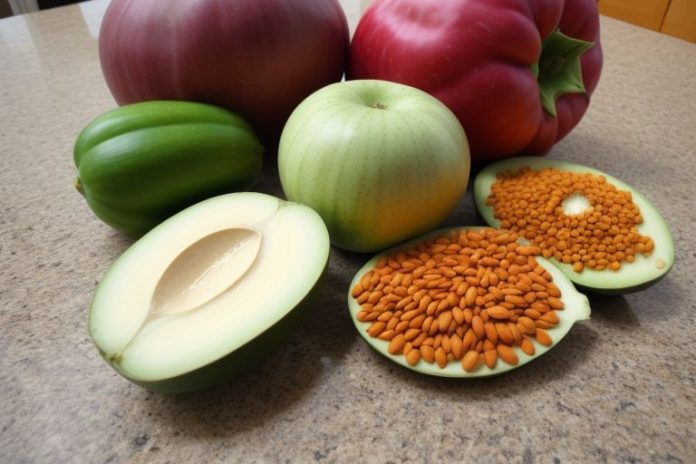In today’s health-conscious society, the quest for quality vegetarian protein sources has never been more critical. With a growing number of individuals turning towards vegetarianism and veganism, either for ethical reasons, health concerns, or environmental considerations, the demand for plant-based protein options is at an all-time high. WellHealthOrganic.com, a pioneer in the health and wellness industry, has taken significant strides to address this demand by offering an array of vegetarian protein sources that not only cater to nutritional needs but also align with sustainable and ethical eating practices.

Vegetarian Protein Sources: A Sustainable Choice for Health and Environment
The journey towards a healthier lifestyle often begins with understanding the sources of our nutrition. Proteins, the building blocks of life, are essential for the growth, repair, and maintenance of our bodies. Traditionally, meat has been the primary source of protein for many, but the tide is changing. Vegetarian protein sources are gaining popularity not just among vegetarians but also among a broader audience who are seeking to reduce their meat intake for health or environmental reasons.
WellHealthOrganic.com has curated a list of top vegetarian protein sources that are not only nutritious but are also easy to incorporate into daily meals. These sources include:
- Legumes: Beans, lentils, and peas are powerhouses of protein and fiber, making them excellent choices for vegetarians and vegans alike. They can be used in a variety of dishes, from salads to stews, offering versatility in meal planning.
- Quinoa: Often referred to as a “super grain,” quinoa is a complete protein, containing all nine essential amino acids. It’s also gluten-free, making it a fantastic option for those with gluten sensitivities.
- Nuts and Seeds: Almonds, walnuts, flaxseeds, chia seeds, and hemp seeds are not only rich in protein but also contain healthy fats and fiber. They can be added to smoothies, yogurts, or salads for a nutritional boost.
- Tofu and Tempeh: Made from soybeans, tofu, and tempeh are staples in many vegetarian diets. They are excellent at absorbing flavors from other ingredients, making them incredibly versatile in cooking.
- Dairy Products: For lacto-vegetarians, dairy products like milk, cheese, and yogurt can provide a significant protein boost.
The Nutritional Benefits of Vegetarian Proteins
Switching to vegetarian protein sources can offer numerous health benefits. These plant-based proteins are generally lower in saturated fat and calories compared to their meat counterparts, which can contribute to heart health and weight management. Additionally, they’re rich in fiber, antioxidants, and other essential nutrients, supporting overall health and wellbeing.
Environmental Impact and Sustainability
Choosing vegetarian protein sources is not just a personal health choice but also an environmentally sustainable one. Plant-based diets have a lower carbon footprint compared to diets high in meat. Agriculture focused on plants requires less water and land and produces fewer greenhouse gases. By opting for vegetarian proteins, individuals can play a part in reducing the strain on our planet’s resources.
Incorporating Vegetarian Proteins into Your Diet
Incorporating vegetarian protein sources into your diet can be both exciting and rewarding. WellHealthOrganic.com suggests starting with familiar dishes and gradually introducing plant-based proteins. For example, one might try replacing meat with beans in a favorite chili recipe or experimenting with tofu in stir-fries. The key is to keep an open mind and explore the versatility of vegetarian proteins.
Conclusion
The shift towards vegetarian protein sources is more than just a dietary trend; it’s a movement towards healthier living and environmental sustainability. WellHealthOrganic.com’s commitment to providing quality vegetarian protein options serves as a testament to the potential for a balanced, nutritious diet that supports both personal health and the health of our planet. By embracing plant-based proteins, individuals can enjoy a diverse, nutritious diet that aligns with their health goals and ethical values.
As we continue to explore and understand the benefits of vegetarian proteins, it becomes clear that the choices we make about our nutrition can have far-reaching impacts on our health and the environment. Embracing vegetarian protein sources is a step towards a more sustainable, healthful future for ourselves and generations to come.

